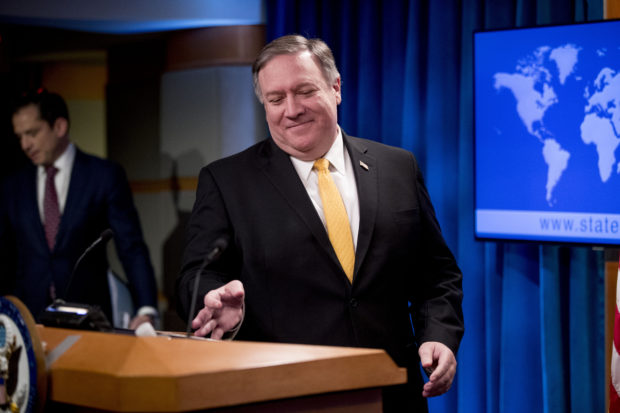Trump blames Russia as for US pulling out from arms treaty

Credit to Author: ggaviola| Date: Fri, 01 Feb 2019 14:28:17 +0000
WASHINGTON – The Trump administration said Friday it is freeing itself from the constraints of a nuclear arms control treaty with Russia and will begin withdrawing from the pact on Saturday.
President Donald Trump blamed the Russians for the demise of the Cold War-era pact, known as the Intermediate-Range Nuclear Forces treaty.
“For too long,” Trump said in a written statement issued by the White House, Russia has violated the treaty “with impunity, covertly developing and fielding a prohibited missile system that poses a direct threat to our allies and troops abroad.”
The INF treaty, signed in 1987, has been a centerpiece of superpower arms control since the Cold War. Some analysts worry its demise could fuel a new arms race.
Trump said that on Saturday, the U.S. will “suspend its obligations” under the treaty, meaning it will be freed from its constraints, including the testing and deployment of missiles banned by the pact. At the same time, the U.S. will begin the process of withdrawing from the treaty, which will be effective in six months, he said.
He said the U.S. “has fully adhered” to the treaty for more than 30 years, “but we will not remain constrained by its terms while Russia misrepresents its actions. We cannot be the only country in the world unilaterally bound by this treaty, or any other.”
NATO said that if Moscow failed to destroy all new missile systems that Washington insists violate the treaty, “Russia will bear sole responsibility for the end of the treaty.”
Trump said his administration “will move forward with developing our own military response options and will work with NATO and our other allies and partners to deny Russia any military advantage from its unlawful conduct.”
An American withdrawal had been expected for months, after years of unresolved dispute over Russian compliance with the pact. It was the first arms control measure to ban an entire class of weapons: ground-launched cruise missiles with a range between 500 kilometers (310 miles) and 5,500 kilometers (3,400 miles). Russia denies that it has been in violation.
U.S. officials also have expressed worry that China, which is not party to the 1987 treaty, is gaining a significant military advantage in Asia by deploying large numbers of missiles with ranges beyond the treaty’s limit. Leaving the INF treaty would allow the Trump administration to counter the Chinese, but it’s unclear how it would do that.
Secretary of State Mike Pompeo said in early December that Washington would give Moscow 60 days to return to compliance before it gave formal notice of withdrawal, with actual withdrawal taking place six months later. The 60-day deadline expires on Saturday, and the administration is expected to say as early as Friday that efforts to work out a compliance deal have failed and that it would suspend its compliance with the treaty’s terms.
Technically, a U.S. withdrawal would take effect six months after this week’s notification, leaving a small window for saving the treaty. However, in talks this week in Beijing, the U.S. and Russia reported no breakthrough in their dispute, leaving little reason to think either side would change its stance on whether a Russian cruise missile violates the pact. / gsg